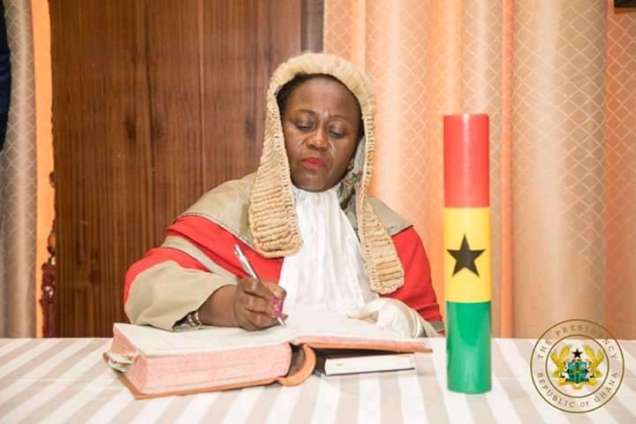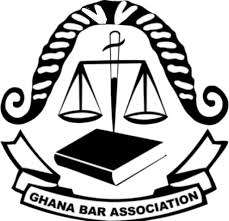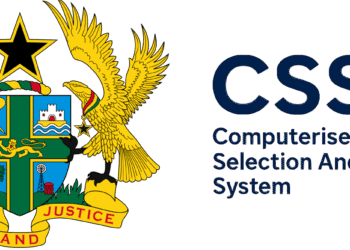The Ghana Bar Association (GBA) has raised the alarm on multiple urgent national concerns—from illegal mining and violent conflict to electoral gridlock and judicial transparency—at its 2025 Mid-Year Conference held on April 26 at the Labadi Beach Hotel in Accra.
In a statement released today, April 29, the GBA presented a suite of hard-hitting resolutions that reflect a growing unease among legal professionals about the country’s trajectory.
One of the most immediate and compelling issues addressed was the destructive impact of illegal mining, widely known as “galamsey.”
“[GBA] Unequivocally condemns the ongoing galamsey activities across the country and calls for immediate, decisive, and sustained action by all arms of government, law enforcement agencies, and relevant stakeholders to eradicate the menace.
“[GBA] urges the Judiciary to prioritize and expedite the hearing of galamsey-related cases, ensuring that offenders are held accountable in accordance with the law, without fear or favour.”
Ghana Bar Association (GBA)
The Association cited severe consequences to the environment, water bodies, farmlands, and public health and called on all arms of government, law enforcement agencies, and civil society to act decisively and without delay.

Calling for the Judiciary to take a frontline role in combating environmental crimes, the GBA urged judges to expedite the hearing of galamsey-related cases and deliver judgments that hold offenders accountable “without fear or favour.”
It was a clear signal that the legal community expects a more proactive stance in addressing one of the country’s most persistent and harmful illegal enterprises.
GBA on Bawku, Ablekuma North
Beyond environmental concerns, the Ghana Bar Association turned its attention to national peace and stability, particularly the long-running and deadly conflict in Bawku.
With lives and property continuously at risk, the GBA lauded current mediation efforts and emphasized the importance of traditional leadership in the peace process.
The Association “supports the involvement of eminent chiefs across Ghana, whose wisdom, neutrality, and traditional authority are critical in fostering reconciliation and lasting peace.”

It singled out the Asantehene, Otumfuo Osei Tutu II, for praise and called for strong national backing of his efforts and those of other traditional leaders.
“The Association also commits to using its voice and platform to advocate for a peaceful resolution and will support any constitutional and legal measures necessary to secure enduring peace in Bawku.”
Ghana Bar Association (GBA)
On the electoral front, the GBA expressed deep concern over the unresolved parliamentary elections in Ablekuma North.
Months after the 7 December 2024 general elections, the people of the constituency remain without a Member of Parliament.
The Bar Association “notes with concern the lack of parliamentary representation” and calls on the Electoral Commission, the 2024 Election Security Task Force, and the Ghana Police Service to “take immediate and necessary steps” to resolve the impasse by finalizing collation and declaring the results.
According to the GBA, the delay is a violation of the democratic rights of the people of Ablekuma North.
Judicial Independence In Focus Once Again
Alongside its focus on national issues, the Association reaffirmed its position on recent judicial administrative decisions, drawing attention to a new directive from the Acting Chief Justice concerning court assignments and hearing timelines.
The GBA expressed concern that the directive lacks clarity and could hinder the timely delivery of justice.
“Recognizing that the directive… is uncertain and having regard to the importance of technology and the urgency of justice delivery,” the Bar called for its immediate withdrawal.
Instead, it encouraged the judiciary to enhance the use of technology in case management and assignments, a move the Association believes would foster efficiency and transparency.

But perhaps the most politically charged point in the GBA’s resolutions was its relentless response to the controversial suspension of the Chief Justice.
Here, the Association’s tone turned legalistic and uncompromising. It “calls for the immediate revocation of the suspension of the Chief Justice” on constitutional grounds.
The GBA argued that the President of the Republic, not being a judge or judicial officer, acted outside his bounds by suspending the Chief Justice under Article 146(10) of the 1992 Constitution.
More troubling, according to the Bar, is that the President did so “in the absence of a published Constitutional Instrument, Statutory Instrument or Regulation(s)”—a clear breach of Article 296, which requires that discretion be guided by law.
Moreover, the GBA demanded full disclosure of the decision that led to the establishment of a prima facie case against the Chief Justice. “This disclosure is necessary to ensure that the process is conducted in accordance with the principles of transparency and fairness,” the statement read.
The Association concluded by condemning all “unsubstantiated political commentary or statements that seek to undermine the authority, independence, and integrity of the Judiciary.”
It reaffirmed its commitment to using all legal channels to protect the Judiciary from undue interference.
With these sweeping resolutions, the Ghana Bar Association has made it abundantly clear that it sees itself not just as a professional body but as a custodian of constitutionalism and national integrity.
From environmental justice to judicial independence, the GBA is calling the nation to account—and challenging institutions to rise above politics and serve the Republic faithfully.



















